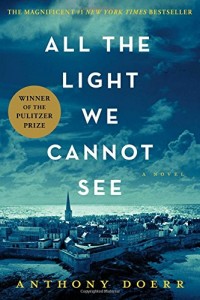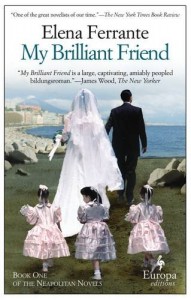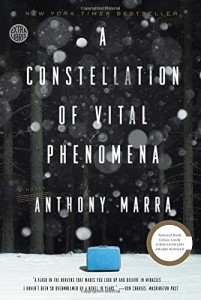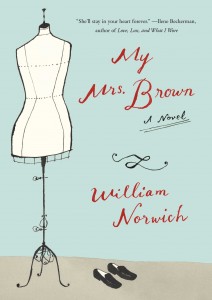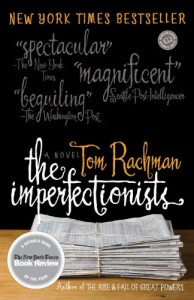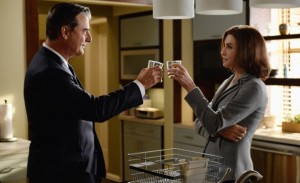Browsings by Michael Dirda
 Browsings by Michael Dirda
Browsings by Michael Dirda
A Year of Reading, Collecting, and Living with Books
What prompts me gravitate to books about other books? They only add to my long lists and piles of books I want – nay, must read. It’s a sickness I tell you – a real sickness. You may remember this post, when, after doing the math, I soberly realized I’ll never read all the books I want to read. But like a moth on its death journey towards a hot light, here I go again. Send help…
I just finished reading Browsings, Michael Dirda’s collection of essays about – you guessed it — books and reading. Mr. Dirda, a weekly book columnist for the Washington Post, is no slouch, he received the Pulitzer Prize for distinguished literary criticism.
These essays come from his writings for The American Scholar. I’d never heard of this journal and after some sleuthing (OK, a bit of Google searching) it turns out to be the quarterly magazine of the Phi Beta Kappa Society. (No wonder I never heard of it. Way above my mental pay grade.) Lest you fear, these essays are down to earth, funny and nowhere near as pretentious as “The American Scholar”. Just read this from the back jacket cover:
He was once chosen by Washingtonian Magazine as one of the twenty-five smartest people in our nation’s capital – but, as Michael says, you have to consider the competition.
In the introduction, Mr. Dirda recommends reading his essays no more than a few at a time, and also reading them in order. I obeyed the first advice, but not the second. I admit I did leap around a bit, but in the end, I read them all. Browsings was my constant companion for that soothing half hour just before falling asleep.
The essays in Browsings are eclectic and seemingly random…from his sad musings of his mother’s nursing home to the loss of cursive penmanship – but the connective tissue is books, reading books, collecting books, finding books, talking about books and writing about books.
In fact, many of the essays are interspersed with reading lists (thus my ever expanding TBR titles). We share a fondness for Christmas books — he lists and summarizes his favorites – (taking notes, taking notes…)
Another essay starts with a rant against his local power company when he was without power for three days during a DC area heat wave.* By the third day, he blissfully escapes to a cooler, more northerly-located bookstore. Mr. Dirda, naturally summarizes the numerous books he acquired. (Come right this way folks, see the idiot making yet more lists of books…)
He has a love of older books – eschews bestsellers and feasts his eyes (and his wallet) on the vibrant dust-jackets of the 1940’s and 50’s. There’s a divine essay dedicated to the golden age of detective novels – trust me readers, you, too, will be jotting notes. Mr. Dirda, in another excerpt, reflects upon the bookshelves, favorite notebooks and writing implements of various great authors — what reader can’t resist picturing Colette writing with a beloved Parker fountain pen?
After reading an article about millionaire author and Law & Order producer David Wolf, who owns a home in Montecito, California — “where God would live if he had the money.” –he ponders excessive wealth and Tolstoy’s lament – “how much (land) does a man need?” Mr. Dirda reflects on his own excess — books:
It’s certainly not as though I need any more books. Just yesterday I was up in the attic creating neat stacks of those I would like to read Right Now.
Of course the author speaks fluent French and taught English in Marseille. He tells of a hunch-backed dwarf who cut hair in a garage, where one had to climb down into a pit so he could circle around and cut the hair. I don’t do the tale justice, you must read it for yourself.
When I read the following passage, I wondered if Mr. Dirda was a ghost here in my home office, silently judging me hunched over my computer:
…I’ve discovered, you have to get out, you do need to see other human beings. You can’t just read and write all day, much as I’d like to. After a few hours in a chair, my body grows achy, my brain feel even mushier than usual, my tired eyes start to hurt. To refresh myself I usually go for a walk, or if I’m feeling virtuous and resolute, I’ll hike over to the gym. (Thanks much, how to be superior Mr. Dirda.)
I just love this guy, he’s a charming, quirky book nerd. How could I not fall for a guy who dreams of traveling around North America in a van visiting secondhand bookstores. (Question, would a van be large enough for both of us and our book purchases? — Time to re-think the vehicle Mr. Dirda.)
After finishing the final essay, and in addition to the wildly optimistic new list of books I must want to read, I jotted down some quotes from Browsings – you bibliophiles out there will relate:
I also think of some books as my friends and I like to have them around. They brighten my life.
The world of books is bigger than the current best-seller list.
Books don’t furnish a room. A personal library is a reflection of who you are and who you want to be, of what you value and what you desire, of how much you know and how much more you’d like to know.
What fun it was to spend time each evening with a witty, engaging and off-the-charts-smart booklover whose reading covers a surprisingly wide breadth of interest and expertise.
Look for his other books which include Book by Book (own it), Classics for Pleasure (want it), and Readings (just got it).
(*N.B. He’s talking about Silver Spring, Maryland, where I grew up and summers were indeed brutal. I spent those hot, humid days with Nancy Drew in front of a cooling fan until I was forced to go out and play. That says a great deal don’t you think?)
Publicity ~~ from across the pond
I’m so excited…
One of my favorite book blogs is Savidge Reads in England. Simon Savidge is a major player in the world of book reviewing and book judging over there. I’ve been following Simon’s blog for several years now. When he raves about a book – I’m writing it down, when he lost his beloved Gran (another book lover) I sobbed, when he profiles his favorite bookshops I sigh in envy — in short, I’m a big fan.
His blog has a huge following and (gulp) today he’s profiling my bookshelves and this here little ol’ Book Barmy in his segment called Other People’s Bookshelves.
See my moment of fame HERE
Be sure to browse the rest of his blog — it’s wonderful!
The Dipper Defense
You may have noticed my absence here on Book Barmy. I apologize for neglecting you, but I’m going to plead the “dipper” defense.
This is a Dipper and he hops along a stream dipping in and out of the water, taking little samples of surface bugs and flies. Never lingering in one place, he has to try every nook and cranny of the stream bed.  I’ve been doing the same thing with books. Dipping in and out of a pile of books that landed in my reading nook. I’m changing books like a teenage girl changes outfits.
I’ve been doing the same thing with books. Dipping in and out of a pile of books that landed in my reading nook. I’m changing books like a teenage girl changes outfits.
I open one book, read a chapter, then pick up another to taste that one — then skim the back cover of another and before you know it, I’m into that one. Must Focus …
Luckily my dippyness (yup, I just made that up) has recently subsided and I’m almost finished a couple of these, so proper book reviews will resume shortly.
In the meantime, is anyone else really sad to see this series end?
The Good Wife-superb writing and a gasp-inducing storyline involving lawyers, politics and sex – some of the best television ever.
I’m especially going to miss this guy — sighhhhhh.
A Woman of Independent Means by Elizabeth Forsythe Hailey
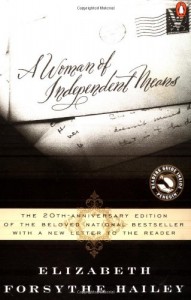 I first read this book back in 1980, just a couple of years after it was published. Embroiled in graduate school demands and anxieties, I needed a reading escape, but nothing frothy or light. My brain was working overtime, on all cylinders, and my recreational reading needed to do the same.
I first read this book back in 1980, just a couple of years after it was published. Embroiled in graduate school demands and anxieties, I needed a reading escape, but nothing frothy or light. My brain was working overtime, on all cylinders, and my recreational reading needed to do the same.
As it often is with books, I found A Woman of Independent Means as a beat-up paperback left behind on the student lounge bookshelf. It turned out to be the exact right book at the exact right time. Reading the life story of Bess, a woman who never, ever suffered from feelings of inadequacy or low self esteem, was the perfect foil to my own quivering mass of insecurities trying to survive in a often harsh and competitive environment.
In the years since, I have re-read this classic several more times and once again this past month when a new edition (above) entered my library to happily replace my original beat-up paperback, with a truly ugly cover.
This epistolary novel is comprised of one woman’s correspondence to her family, friends, and others spanning from the turn of the last Century to 1968. Bess is based on the author’s own grandmothers letters and we see Bess live through two world wars, the great depression, the influenza epidemic and the assassination of President Kennedy. She observs horse and buggy days through automobiles and from crossing the ocean by ship to air travel. We see history unfold through her letters.
The author has created a remarkable and complex woman – both ahead of her time and an ambitious, independent thinker. Bess is outspoken, brash, rebels against convention, and yet, is completely vulnerable. Through her letters, the reader watches the narcissistic Bess try to manipulate and control her loved ones’ lives — truly unaware she is overstepping and usually hurt and bewildered when they rebel.
Bess suffers financial ruin after the death of her first husband, so becomes financially savvy and sets herself up to be independently wealthy through her second marriage. As a “women of independent means” she is able to get what she wants – whenever she wants — often with grimace-worthy results:
I am very sorry to hear of my cousin’s illness. I have not received a letter from her since last summer and I was beginning to wonder what reason I had given her for such a long silence. When she regains consciousness, please tell her I wrote to express my concern.
If she does not regain consciousness, may I remind you that I am the legal owner of the four-poster bed she now occupies and in the event of her death, it is to be shipped C.O.D. to me here in Texas. Cordially, Bess Alcott Steed.
Bess’s Machiavellian actions are in stark contrast to her overwhelming need be loved and admired. She is constantly confounded by others’ actions and strives to put things right – as she sees it.
Throughout a series of of personal tragedies, Bess remains relentlessly optimistic. From the loss of her son, to the burning down of her beloved home, Bess never feels sorry for herself and is somehow stronger after each (often unbelievable) set-back.
Bess and her married daughter have a predictably difficult relationship which Bess tries to solve by inviting herself to her daughter’s social events and ingratiating herself with her daughter’s best friends. A heart wrenching letter to her daughter in 1943 is some of the best insight on aging mother/grown daughter relationships I’ve ever read.
There are many moments when Bess has the clear-sightedness of age and experience. I stopped to underline several passages such as this one:
Remember the night you and I talked until dawn with Betsy trying her eight-year-old best to stay awake with us? The others had long since fallen asleep when she suddenly saw the sun rising and burst into tears, terrified to realize morning would come whether she had slept that night or not. But better for her to learn early that nature does not ask our consent to continue its inexorable circuit.
Ms. Hailey has brilliantly crafted a complex character who will stick with you long after you close this novel’s pages. Bess is far from perfect -and I was often exasperated (and sometimes horrified) by her — yet I still shed a few tears with her. Like all fascinating characters, I was always interested in Bess, never bored by her and actually loved every moment I was allowed to spend in her presence.
Advance Readers Copies
I revel in receiving Advanced Readers Copies of books from publishers. These ARCs (sometimes called proofs or galleys) are given to book reviewers and book sellers in exchange for honest reviews and hand-selling the book at their bookstores. They also ask that you state this fact with your review of the book.
This gift of pre-publication reading means I have often read many bestsellers by the time they are published and being talked about. These ARC’s come to me in both digital and printed form, and have not gone through the final edit – so you find yourself slowing down at a few typos here and there — not to mention the odd formatting especially with digital editions. They also sometimes lack cover art — so it is very surprising to see how the real book looks when it hits the shelves. (I find myself imagining the perfect cover as I read).
Quite a few of the ARCs I’ve read are pretty bad and I don’t get beyond the first few chapters, others are just not my type, and some are so horribly formatted (I’m talking digital here) that you can’t make heads or tails of what you’re reading. But, happily, most are admirable — if not amazing.
I finished one of those simply great ARCs the other evening, and was ready to tell you all about it here. The back cover says publication in March 2016, but something gnawed at me. I’m a very minor player in the book review world, but I do keep up with book review publications and I hadn’t seen it on any bookstore “new arrivals” shelves. (Trust me, I am a pretty major bookstore junkie browser.)
So I did some sleuthing and found out that this wonderful book’s publication has been delayed until October 2016.
Publishers ask that a reviewer NOT review an ARC until 30 days of its publication and I like to wait until it actually is published — just to be sure.
So I will review another book here on Book Barmy shortly — one I just re-read and loved just as much as the first time I read it – yikes 30 odd years ago.
Otherwise Normal People by Aurelia Scott
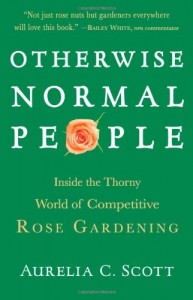 You may remember THIS POST where I shared my
You may remember THIS POST where I shared my obsession love of old garden roses which all started from reading a small book on lost roses.
But this book takes rose love to a whole new level. These people are truly and certifiably obsessed — this book opens the doors into the quirky world of competitive rose gardening and shows.
In Otherwise Normal People, Aurelia Scott follows Roseaholics as they plan, prepare, and compete in prestigious rose shows — battling high winds, Japanese beetles, and the finicky demands of their precious charges.
There’s a former race-car driver who plants years in advance for each show, a forensic chemist whose collection of hybrid teas and miniature roses tops out at nearly one thousand, and my personal favorite, a genteel woman who traipses through abandoned lots rescuing antique varieties.
We marvel at the ingenuity of one rose gardener who installs wire perches for the sparrows and trains them to eat Japanese beetles directly from his rose bushes.
We discover the sweetly eccentric:
I have 225 rose plants in my yard and I know every one of them by name. They are as different from each other as people are. I holler at them sometimes. And I talk to them nicely. They know that my greatest joy has been to get out in the garden with them.
We experience the tolerant love of the rose enthusiast’s partners:
Well, we went to the convention (Pasadena Rose Convention) and I walked into the showroom and said, “Oh my God” I had never seen so many roses in my life. Kitty saw bouquets of a red-blend hybrid tea named Double Delight, leaned in to sniff its spicy fragrance, and said “I’ve got to have that, and I have got to have that one too” So that was that. They dug up the yard. Or rather Bob dug up the yard.
Of course, my favorite chapter is entitled The Heady Scent of History which focuses on old roses and the stories behind roses brought out West by settlers, planted by graves of loved ones, and trailing over miners’ shacks in the California gold rush country.
Ms. Scott has written a book which names actual growers, so one would think it would raise eyebrows among the ultra-competitive world of rose showing. But on the contrary, this is a gentle, happy book celebrating rose shows and the world of exhibition roses, it is not an expose. The author is remarkably kind and seems in awe of the time spent in gardens, and the work required to keep their beloved roses thriving.
Even if you’re not a rose nerd lover like me, I think you will enjoy this peek into a hobby like any other – a hobby that can take over and become an all-encompassing obsession. Yes, we’re they’re eccentrics — but they’re such a delight and their stories are equally delightful.
Shameless Plug: If this book, or my other recommendation, has you at all interested in roses – especially old roses – and you’re in the Bay Area on May 15 – you must attend THIS AMAZING EVENT.



